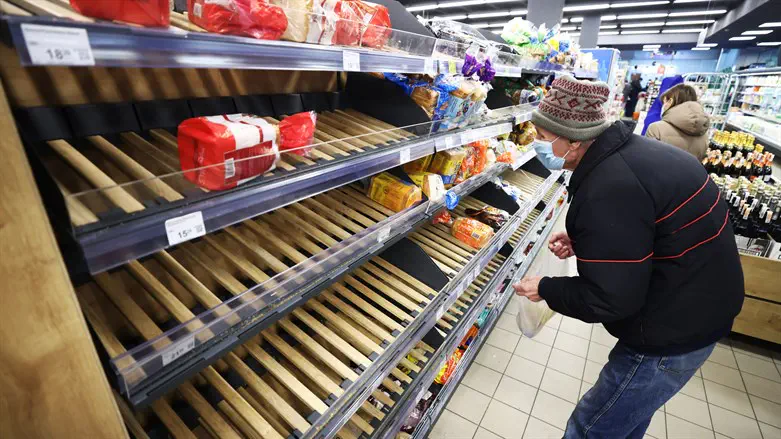
Prices of key commodities have been rising exponentially for years and the COVID pandemic only accelerated the process. Now, however, the war in Ukraine is likely to speed up the price increases still more, given the instability in the markets that war causes, and the fact that both Russia and Ukraine are key producers of wheat and other staples.
According to the UN Food and Agriculture Organization (FAO), the situation is verging on disaster. “We were already having problems with food prices,” the FAO’s chief economist, Maximo Torero, told The Guardian. “What countries are doing now is exacerbating that, and the war is putting us in situation where we could easily fall into a food crisis.”
In the last few days, wheat prices have hit record highs. The prices of both wheat and barley rose by nearly a third last month, and the prices of rapeseed and sunflower oil rose by over 60 percent last year.
“My greatest fear is that the conflict continues – then we will have a situation of significant levels of food price rises, in poor countries that were already in an extremely weak financial situation owing to Covid-19,” said Torero, considered a foremost expert on food and hunger. “The number of chronically hungry people will grow significantly, if that is the case.”
Torero added that due to the effects of the pandemic and the lockdown policies pursued by many countries, food vulnerability increased. “Stocks were very high at the beginning of Covid-19, there was the capacity then to respond to the shock. But having Covid-19 for two years has weakened the resilience of food systems.”
According to estimates, Ukraine alone supplied 12 percent of all global wheat supplies prior to the outbreak of the current conflict. It is also the world’s largest producer of sunflower oil. Although much of the current wheat crop had already been shipped before Russia invaded, the conflict may lead to an inability to plant for next year.
Moreover, both Ukraine and Russia are key producers of fertilizer, whose price has also skyrocketed.
“Right now, we can’t say prices are higher than in 2007-08, but it can get worse. If the energy and fertilizer situation becomes more serious, that will be worse than in 2007-08. If you add to that the potential for export restrictions, it will get worse,” Torero said.
“Of course Russia can do what they want with their production. If they restricted exports, then the situation would get worse. Prices would increase even more,” he added. “We urge all countries, not only Russia but all countries, not to put export restrictions in place.”
Last Friday, the agriculture ministers of the G7 group of the world’s wealthiest countries met to coordinate a response, urging countries to keep markets open.

